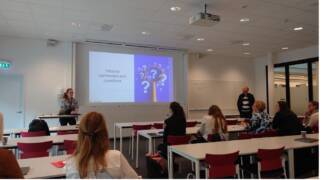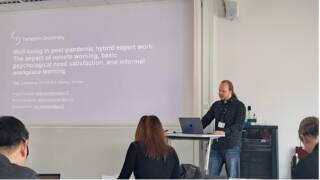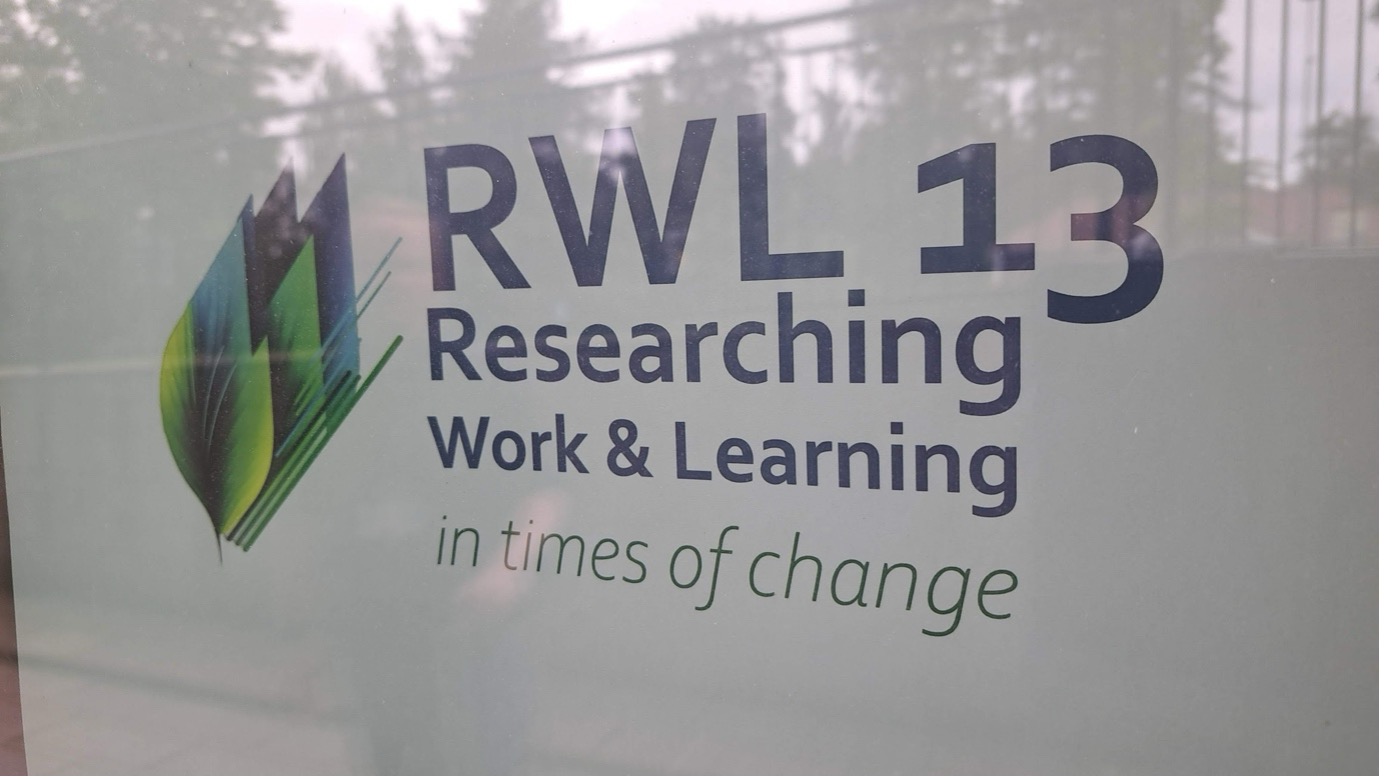PGL researchers Ilmari Puhakka and Eija Lehtonen, and Professor Petri Nokelainen participated in the conference, where Puhakka and Lehtonen had two presentations describing the results from HYBRIDI research project (2022–2023) funded by the Finnish Work Environment Fund.
Puhakka presented survey results and implications in the presentation “Well-being in post-pandemic hybrid expert work: The impact of remote working, basic psychological need satisfaction, and informal workplace learning”. Remote working intensity was negatively associated with relatedness satisfaction but surprisingly not with any other well-being or learning variable. Additionally, autonomy and relatedness satisfaction were the strongest predictors of higher job satisfaction and lower turnover intention. Informal learning had a positive influence on job satisfaction and negative on turnover intention but only via work engagement. The results indicated that the increase in multilocational and remote working has not fundamentally changed the dynamics of learning and well-being in expert work. Furthermore, organizations should provide autonomy and encourage IWL (e.g., improving feedback culture) alongside with relatedness increasing policies and activities to improve experts’ well-being in work.
Lehtonen presented preliminary results in her presentation titled “A typology of approaches to professional learning and development in post-pandemic multi-location expert work in the field of technology in Finland.” The mixed-methods study combined interview and survey data, which were analysed utilising an ideal type analysis. The data revealed four types of employees related to remote interaction and workplace learning:
- “Isolated” employees felt that remote interaction hindered learning.
- “Thriving” employees felt that remote interaction promoted learning.
- “Adaptive” employees reported that remote interaction both hindered and promoted learning.
- “Ambivalent” employees did not perceive remote interaction as having an impact on workplace learning.
Based on the survey data, it was observed that employees use different approaches to informal learning at work, and thus remote interaction can have individual effects. For example, “adaptive” employees used self-reflection more in their learning compared to others, while “thriving” employees reported using observation of others’ work less frequently in their learning. Due to individual factors, instead of focusing on the negative effects of remote interaction, it would be beneficial to highlight and promote the opportunities remote interaction offers for enhancing workplace learning.
Attending the conference provided connections to other research groups focusing on the similar topics hopefully resulting in further national and international collaboration. Furthermore, extended abstracts of both presentations will be submitted to be considered in the special issue of the journal Studies in Continuing Education.
Conference web pages: https://liu.se/en/article/conference-researching-work-learning
Conference presentations: https://urly.fi/3yhQ



